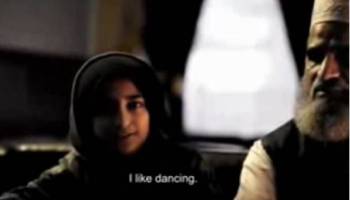Ad Critique
Engaging minority Muslims in the mainstream and creating a two way dialogue
10, May, 2013
Brand: Antirasistisk Senter (Anti-racism centre) | Country: Norway
Images: Muslims featured in national TV ad (above left and right). Facebook campaign (below left), Queen of Norway goes for tea time at a Muslim household (below right)
The context:
There are Muslims who live as part of minority populations, particularly in Western nations where it is relatively new to have sizeable Muslim populations. This is particularly true for countries like Norway. Such Muslims often feel excluded by the mainstream, and alongside with this can suffer from prejudice often built on ignorance and lack of personal interaction. This can lead to increasing levels of prejudice against Muslims, and a growing sense of isolation and exclusion on the part of Muslims.
The concept:
An invitation was sent out from Muslims ‘to invite you to their house for a cup of tea’. A national TV campaign was run (see TVC link). The advert introduces Muslims as individuals by their name, offering respect and personalisation. It also introduces something they enjoy personally, such as ‘dancing’ or ‘being a princess’ as one child explains. Invitations were sent to local leaders and communities. As this was a social campaign, Facebook was heavily utilised to share the invitation too. Even the Queen received an invitation and went to tea at a Muslim home.
What we liked:
With support from the Queen, and a holistic campaign, the concept put Muslims and their peers on an equal footing. A concept deeply rooted in the Muslim psyche – hospitality – was translated into a concept deeply rooted in Norwegian culture – the welcome into the home. This translation of core values and an insight into how they are similar was powerful both for Muslims and those they were inviting.
There was a clear insight behind the campaign: that personal contact makes a difference. This is mutual engagement. The engagement wasn’t forced, it was done by invitation, again mutual engagement. The invitation was personal: “Will you come to my home for a cup of tea”, underscoring how Muslims believe the individual is part of a community, and that the personal story is important.
Further, the campaign represented Muslims in their day to day lives, as ordinary people, but also in their diversity. This humanised Muslims, which they feel is a very important aspect of the way society receives them. The campaign made Muslims feel equal, respected and valued, at once ordinary but all individuals and diverse.
The symbolism of the cup of tea is powerful because it is peaceful, hospitable and neighbourly. It cannot be overstated how important this value of caring for your neighbours is for Muslims, as looking after your neighbours is part of Islamic teachings.




